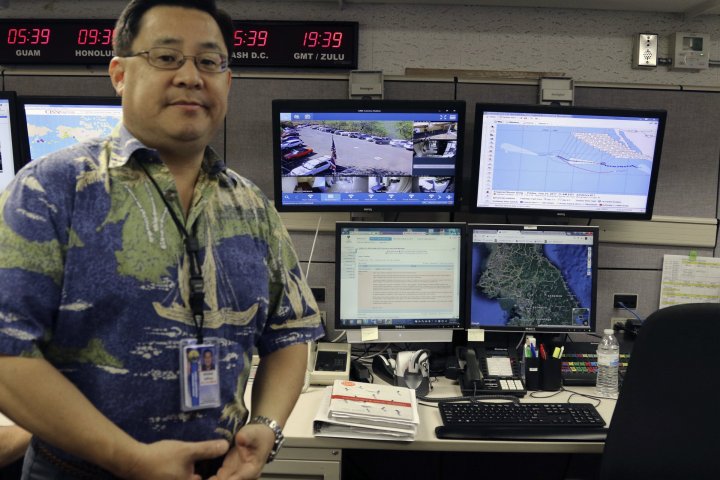
As Business Insider reports, the terrifying false alarm was the result of “an employee (pushing) the wrong button,” as Hawaii Governor David Ige attested. But with so many cyberattacks over the last few years, it’s natural to suspect that a hacker was at fault. As a picture posted in an Associated Press story published in July 2017 demonstrates, that suspicion is justified — the Post-it Note stuck on the lower left-hand display contains some system’s password, a real security risk.
That’s not the only issue that’s been identified. As Ars Technica pointed out, the system was simply poorly designed, with options that were not clearly labeled nor organized in a fashion to avoid confusion. The employee who kicked off the message has been “reassigned,” and the agency has now added an automated “false alarm” notification to make it easier to broadcast a correction. That’s a good thing, given that the former manual process required a full 38 minutes for a correction to be released.
These are the two images side-by-side. One resulted in widespread ridicule. The other appears to be a response to that. Both raise LOTS of questions pic.twitter.com/On88vbsZ5z
— Nick Grube (@nickgrube) January 17, 2018
It seems that Hawaii isn’t the only place where accidental missile warnings have caused distress. Japan also sent out an erroneous alert, via broadcaster NHK with the message, “NHK news alert. North Korea likely to have launched missile. The government J alert: evacuate inside the building or underground.” In this case, the message was retracted instantly, and the NHK subsequently issued an apology for the error.
Clearly, as geopolitical tensions heat up, these systems need to be fixed sooner rather than later.The Aesop fable The Boy Who Cried Wolf comes to mind, whereby false alerts could lead to complacency and citizens failing to respond should a real emergency arise.



